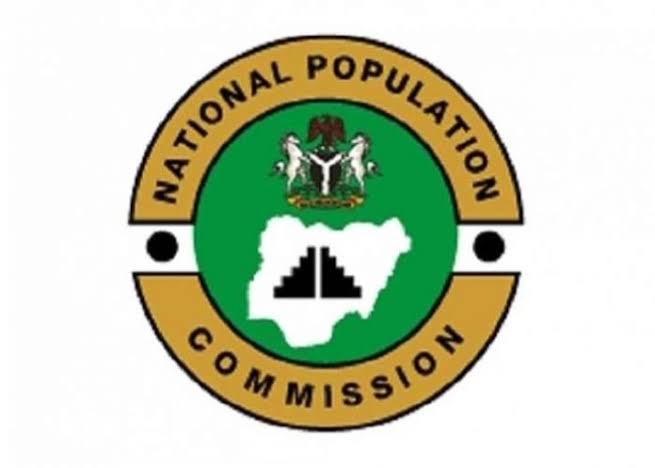In mid-April, the National Population Commission (NPC) disclosed that it would conduct the much-anticipated next census in April 2023, that is, shortly following the 2023 elections and exactly 12 months from the date of the NPC announcement. NPC’s disclosure followed a meeting of the National Council of State, an advisory body comprising former heads of state, all governors of the 36 states, leaders of the National Assembly and officials of the federal government.
I found the announcement intriguing and thought that the council had agreed on a decision that can only be good for Nigeria as a whole. Does Nigeria grasp the full institutional implications of holding a census and election a few months apart? What would be the costs and benefits of doing so? And what would it mean for the whole question of institutional development in Nigeria as a developing democracy? As someone who likes to think he thinks about policy and development in Africa, these questions have occupied my mind. I thought that if we could pull off in the same year, it would be a significant leap in the right direction for Nigeria’s public management, after all, both involve similar activities, and share a similar political history.
But I was soon jolted back to the reality of the messy political contexts in which otherwise useful public policies operate in Nigeria. First, a group, Yoruba Global Alliance (YGA), released a statement in the newspapers just three days after the announcement by NPC saying the proposed census period is “an ignominious mischief towards a predetermined end of imposing false demographics on Nigeria to the advantage of the Fulani hegemony. Nigerians cannot be deceived any longer”. And then, the columnist, Dr Amanze Obi, fired another salvo at the timing of the census in his Broken Tongues column in The Sun along the same lines as YGA although in a bit more elegant English.
Like YGA, Dr Obi’s argument is that the Buhari administration is insisting on conducting the census shortly after the elections and before it leaves office because the government, he claims, wants to retain the “North’s numerical advantage” in Nigeria. Such an argument is outrightly false, of course. But more pointedly, the National Council of State was created by the constitution to advise any government on important matters of state like censuses precisely to avoid such false arguments.
If the census timetable is being arranged to create advantage for anyone or any group in Nigeria, would former Presidents Obasanjo and Goodluck Jonathan, both of whom attended the Council meeting at which the decision was taken, have agreed with it? Would the governors of the 17 southern states who are also part of the council of state have gone along with it? And would the thousands of southern Nigerians who will participate in the census as enumerators, supervisors, zonal heads, and so on, throughout the country agree to rig the census in favour of anyone?
Moreover, this census should have been held in 2016, going by Nigeria’s census calendar of a census every decade, but could not because the government said it lacked the money to fund it due to the recession arising from the slump in oil prices during 2015-2016. And then, there is the pandemic. So, the whole idea of holding the census next year may be no more than circumstantial. My main argument, however, is that arguments about regional hegemonic ambitions with respect to any major policy in Nigeria are not only factually baseless, as they are most of the time, but also only work to help kill important policy initiatives of any government in this country.
Nigerian federalism is structured in ways that make any regional hegemonic ambitions impossible to attain. Even a northern Fulani presidential candidate, for example, cannot win unless he receives significant support from the south, as Buhari’s own contests amply demonstrate. So, a census designed to the advantage of any one region in Nigeria is simply impossible, even if anyone harboured the thoughts. This is a constant of Nigeria’s federal politics.
For me personally, I find the proposed census dates interesting for several reasons. First, from a social science perspective, both are surveys. A census is a survey of every person in the population which collects data about who they are and where they live; an election is a survey of the voting choices of only the adult population about who they want to hold particular offices of state. In fact, the methodologies for designing census enumeration areas and election polling units, as well as for other statistical data collected regularly by many agencies, are much the same. So, there is no scientific or logistical reason why the two cannot be held a few months apart.
Second, census data coming after the elections is about the best gift the present government can give to the next. All the major issues the next government must deal with, from insecurity to the economy and education, sound and up-to-date, require demographic facts about Nigerians and where they live. This is the data the census will collect ready to use by the next government. For the next government, the 2023 census should be perfect timing. But it is not just governments that need or use census data. Donors, civil society organisations and the private sector also need and use census data for their programming from June 2023 onwards, especially now that their activities in Nigeria have grown exponentially in recent years. Nigeria simply cannot continue to rely on projections based on obsolete data.
Furthermore, holding both the census and the elections in the same year can reduce costs. First, the enumeration areas (EA) used by the NPC to conduct censuses at local government and ward levels are much the same as those used by the National Bureau of Statistics and even INEC’s polling units during elections. So, mobilising resources to the same places within months can be swifter and cheaper. Also, the NPC has indicated that it will deploy digital technology in the 2023 census, including digital mapping of the entire country for census purposes. INEC is already a leader in this area and the NPC could learn from their experience.
Besides, some of these technologies, particularly those used at the enumeration points/polling units, will be the same and will save Nigeria costs if those deployed by INEC for the elections could be redeployed by the NPC for the census, which means the earlier the better, given the poor maintenance culture in the country. And in addition, both INEC and the NPC employ hundreds of thousands of ad-hoc staff throughout the country for elections or census. Where costing is an objective, and it should be, there should be a way to employ the same people to reduce costs and improve capacity, after all, the two agencies will be drawing on the same sets of Nigerians to accomplish each task.
Finally, it is often said that African countries should strive to develop strong institutions, rather than strong men. But this can only happen when African institutions, governmental or not, can accomplish daunting tasks like conducting free and fair elections and reliable censuses, and more, regardless of extraneous contexts.
In my view, a number of Nigerian institutions, among them INEC, NBS, and to a lesser extent, the ICPC, have shown significant signs to be classified as some of Nigeria’s strong institutions at present. A reliable census shortly following the elections and building on the generally credited 1991 and 2006 censuses will put NPC on a similar path. Nigeria can only be the better for it.

 Join Daily Trust WhatsApp Community For Quick Access To News and Happenings Around You.
Join Daily Trust WhatsApp Community For Quick Access To News and Happenings Around You.


